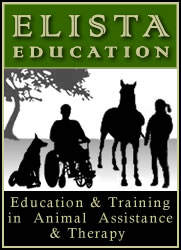ANIMAL WELFARE & REHABILITATION
Animal Welfare is primarily about animal well-being. Although we may 'use' animals for various different reasons, including benefiting humans in many different forms (really nearly every area of ours lives in some way!), we have a responsibility to provide for their well-being.
Unfortunately it is not always easy to assess an animal's well-being or know what is best for them. Animals are unable to communicate with us through verbal language and therefore can not physically tell us when they are fearful, stressed or in pain. Instead we have to learn the other more subtle signals that animals give, we have to educate ourselves and become knowledgeable about their needs and provide for them optimally in their health, housing, behaviourally, socially and possibly even emotionally.
Sadly not all members of our society have fully taken on the responsibility of providing for the needs of domestic animals or captive kept wild animals. Instead as a race we may exploit, abuse or neglect, (often through ignorance) these animals that potentially can do so much for us. One of the amazing attributes of animals is the ability to 'forgive' and despite what some humans may do (or not do) to them, animals will always forgive. Trust may take time, but grudges against human beings are never held and forgiveness is evident, therefore allowing many bruised and battered animals (physically or emotionally) to be rehabilitated.
Rehabilitation works on many different levels, but ultimately sees animals be integrated back into society. Every year thousands of peoples lives are enhanced by the adoption of a 'second hand' rescued and rehabilitated animal.
Although the titles 'Animal Welfare' and 'Animal Rehabilitation' may seem out of sync with ELISTA Education's primary role of Education and Training in Animal Assistance and Therapy, this is not so.
Understanding the needs of animals is paramount for any ethical utilisation, ELISTA Education believes only in mutually beneficial interactions between humans and animals and therefore full awareness of animal well-being is critical. In addition ELISTA Education looks forward to the day when Animal rescuers and those who rehabilitate (particularly in Ireland) and providers of service programmes will be working much more closely together, promoting 'rescued' animals for the enhancement of human lives.
To some degree this already occurs through use of rescued Racehorses in Equine Assisted Therapy, selected rescue dogs trained as Hearing Dogs and in some countries impounded (stray) dogs used in training programmes for prison inmates. These are just a start for the potential human-animal partnerships of rehabilitation.
|

